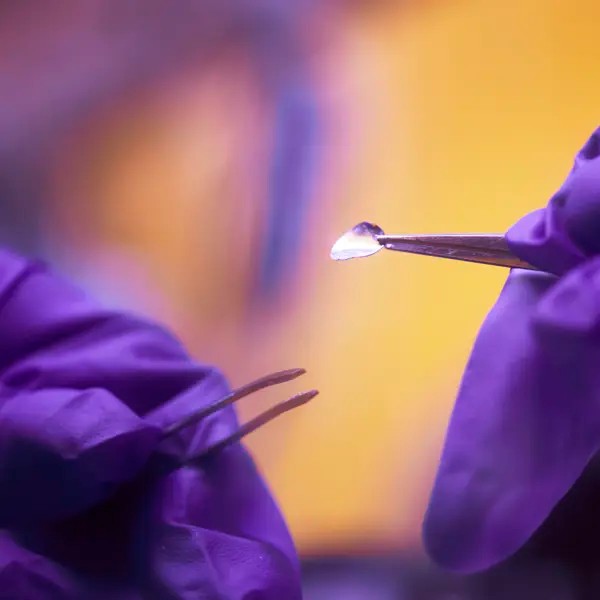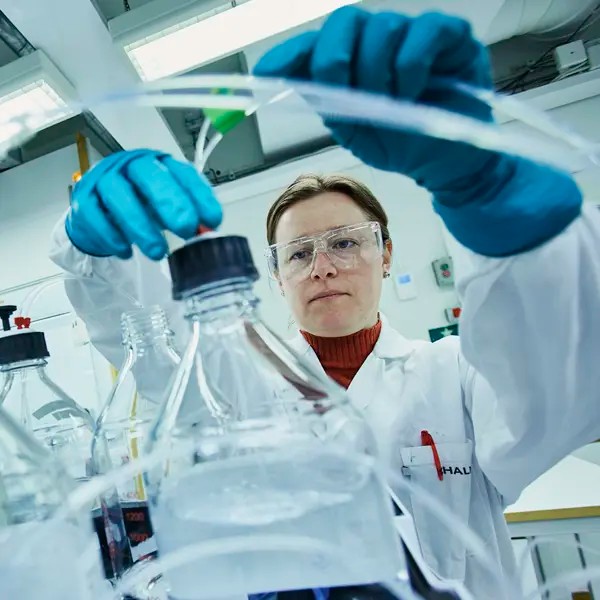The research groups and researchers at the Department of Life Sciences are part of several nationally and international founded centers and infrastructures. The department further functions as a bridge between some of these centres and infrastructures.
Centres

FormulaEx
The Formulaex centre is a SSF-funded industrial research centre for functional RNA delivery. The three academic partners Chalmers University of Technology, Karolinska Institutet and University of Gothenburg carry out research in close cooperation with AstraZeneca, Vironova, Camarus and Nanolyze. The centre contributes with fundamental knowledge required for the design of safe and efficient nanoscale drug-delivery vehicles for next generation nucleotide drugs.

Wallenberg Wood Science Center, WWSC
Wallenberg Wood Science Center is a research center with a focus on new materials from trees. The mission is to create knowledge and build competence that can form the basis for an innovative future value creation from forest raw material.
Infrastructures

Computational Systems Biology Infrastructure
Computational Systems Biology Infrastructure, CSB, is a national research support infrastructure aiming to establishment of a computational framework for management and usage of genome-scale metabolic models (GEMs), as well as providing expert support in computational biology and bioinformatics for nationally prioritised research projects.

Chalmers Mass Spectrometry Infrastructure
The Chalmers Mass Spectrometry Infrastructure (CMSI) is a Chalmers infrastructure with the goal of providing cutting edge and efficient quantitative mass spectrometry and structural identification analyses for researchers at Chalmers and beyond.
Other networks
Blue Food − Centre for Future Seafood
Blue Food − Centre for future seafood is an initiative to harness the enormous potential that lies in producing healthy seafood in Swedish waters and to make Sweden a leading producer of sustainable seafood.
Centre for Antibiotic Resistance Research, CARe
CARe is a collaborative research centre at the University of Gothenburg and Chalmers University of Technology, strategically supported by the Sahlgrenska University Hospital and the Region Västra Götaland.
Food Science Sweden, FSS
FSS is a national platform with the aim of strengthening and highlighting Swedish food research. Within four thematic areas (raw materials, technology, environment, and food-health) the center is currently developing national interdisciplinary research projects.
Kristineberg Center for Marine Research and Innovation
Kristineberg Center is an open partnership founded to accelerate the transition to a sustainable blue economy. The mission is to advance the implementation of research and knowledge.
National Bioinformatics Infrastructure Sweden, NBIS
This is a national VR funded infrastructure with the core at the SciLifeLab. NBIS is the Swedish node of ELEXIR, an EU funded infrastructure for bioinformatics. Chalmers has a node in NBIS and it is planned to expand this further such that it becomes a key node for bioinformatics service in the region.
Novo Nordisk Foundation Center for Biosustainability, DTU Biosustain
DTU Biosustain is a large research center with its main site at Technical University of Denmark and with satellites at Chalmers, KTH and University California of San Diego. The center is funded through a donation of 1.3 billion DKK from the Novo Nordisk Foundation.
PAN Sweden
The vision of the PAN Sweden Research Centre is that sustainable-produced food with health benefits will be the consumer’s preferred choice.
SciLifeLab
SciLifeLab, Science for Life Laboratory, is a national research infrastructure for the advancement of molecular biosciences in Sweden.
SIMPLER
A research infrastructure for a healthy life - Swedish Infrastructure for Medical Population-Based Life-Course and Environmental Research.
Swedish National Infrastructure forBiological Mass Spectrometry, BioMS
BioMS is a national infrastructure for biological mass spectrometry and proteomics.
Large collaboration projects
Collaboration with other universities and industry enables research from the Department of Life Sciences to have an impact on society. Here are some examples of large collaboration projects.
Waseabi
Ingrid Undeland’s research group at the Division of Food and Nutrition Science is partner in the EU-funded project Waseabi. Waseabi aims to develop and test new concepts to enable the industry to use a larger part of the landed marine resources for food products and food ingredients. Up to 70 per cent of the aquatic resources globally, and as much as 85 per cent in Sweden, are today used for other purposes than food, e.g. animal feed, or in worse case are even wasted. This calls for many actions to make the seafood industry more sustainable. Ingrid Undeland’s research contributes with knowledge of processes for preservation of food, and processes for the isolation of proteins which can be used in new marine food products. Collaboration partners are, among others, DTU in Denmark, AZTI in Spain, Sweden Pelagic, Alfa Laval and Royal Greenland.